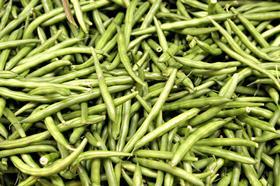
Pea and bean growers are reporting variable quality on spring-sown beans following high temperatures and a lack of rain in recent weeks.
Most growers have had little rain for the last six weeks and in many places soil has gone from holding 98 per cent of its water capacity to less than 10 per cent, the Processors and Growers Research Organisation (PGRO) and British Edible Pulses Association (BEPA) reported in a pulse market update.
“Some of the later-sown beans, though by no means all, have undoubtedly suffered and are starting to look poor,” the report read. “Others, however, appear to have been quite resilient in the conditions.”
Pea crops flowering in the peak heat are likely to have reduced seed set numbers and, in some cases, complete ‘node abortion’ has been seen on the later flowers, PGRO reported. Generally, pea crops have looked good however.
When it comes to pests, aphid levels have been low to date and there has been very little disease, PGRO said, however winter beans were exposed to high numbers of bruchid beetles.
The research body added that the impact on the later crop and the flowering of spring crops was still hard to judge.
Looking beyond the UK, negotiations between international bean exporters and British importers are reported to be ‘a stalemate’. PGRO said buyers were more keenly interested in establishing the area sown, quality and quantity likely from harvest in all production areas.
Sellers, on the other hand, are holding out for higher prices. Some early positions were taken at £184 per tonne ex-farm, but it now seems that even £200/t is not enough to tempt sellers, who are perhaps wary of the as yet unharvested supply potential.
“Everything is likely to change as soon as the first crops come in,” said PGRO. “Demand will be there.”



